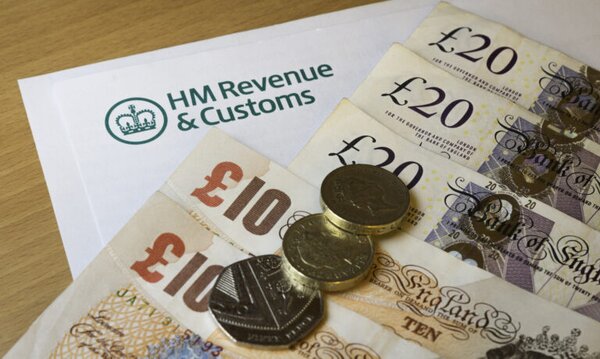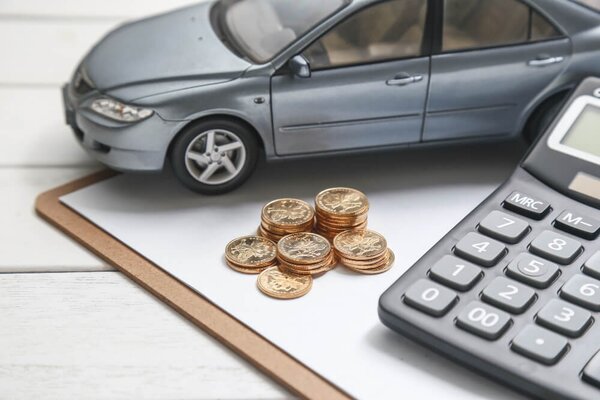Let’s Break This Down Together…
Thinking about going self-employed in the UK but confused about where tax fits in?
Whether you’re launching a side hustle or taking the leap into full-time business, understanding your tax responsibilities as a sole trader is essential. From registering with HMRC to paying the right National Insurance and Income Tax, the process can feel overwhelming, but it doesn’t have to be.
This guide walks you through exactly what being a sole trader means, how to register, and the key tax rules you’ll need to follow. Let’s take the guesswork out of going self-employed, so you can stay compliant, save time, and focus on growing your business from day one.
Introduction to Business Structures
When you’re starting your own business, one of the first big decisions is choosing the right business structure. In the UK, the main options are sole traders, partnerships, and limited companies. Each business structure comes with its own set of rules, responsibilities, and risks, so it’s important to understand what sets them apart.
A sole trader, or sole proprietorship, is the simplest business structure. As a sole trader, you run the business as an individual and keep all the profits after tax. However, unlike limited companies, there’s no legal separation between you and your business.
This means you have unlimited liability, if your business incurs debts, your personal assets could be at risk. For many small businesses and freelancers, the sole trader model offers a straightforward way to get started, but it’s important to weigh up the risks and benefits before you dive in.
What is a Sole Trader?
A sole trader is the simplest business structure in the UK. When you’re a sole trader, you and your business are considered the same legal entity.
There’s no separation between your personal and business finances. You keep all profits after tax, but you’re also personally responsible for any business debts.
As a sole trader, you have important legal responsibilities, including compliance with tax and reporting obligations. You also face personal liabilities, meaning you are personally liable for all of your business's debts and obligations. Your personal assets, including your home, could be at risk if your business's financial health declines or if you cannot meet your business's obligations.
Unlike a limited company, there’s no legal distinction between you and your business. This unlimited liability exposes you to significant risks, so it’s important to understand the potential dangers before starting.
You make all the decisions and control everything about your operation. This gives you complete freedom but also complete responsibility. Sole traders benefit from fewer legal and administrative requirements compared to limited companies, making it easier to start and manage the business.
Pie tax tracks all your sole trader income and expenses automatically, making tax season stress-free. Or if you’re just here to get to grips with it all, let’s break it down!

Sole Trader Meaning Explained
Being a sole trader simply means you’re self-employed and the sole owner of your business. This is often referred to as working on a self employed basis. You work for yourself rather than as an employee for someone else.
You can choose a business name different from your own name. However, legally, you and your business remain one and the same entity.
There’s no minimum capital required to start trading. You can begin immediately, though you must register as a sole trader with HMRC within three months. Registering is a straightforward process that can be completed online.
The “sole” part means you’re the only owner. You can still hire employees if you need help running your business operations.
Registering as a Sole Trader
You must register with HMRC once your self-employed income exceeds £1,000 in a tax year. This threshold is known as the Trading Allowance.
Registration is straightforward through the HMRC website. After registering, you will receive a Unique Taxpayer Reference (UTR), which is required for all your tax filings.
You’ll need to set up for Self Assessment tax returns and declare your self-employed status. You are required to submit an assessment tax return annually to report your income, expenses, and tax liabilities. The self assessment tax return is the process used to report this information to HMRC.
The deadline for registration is 5th October following the end of the tax year in which you started trading. For example, if you began in June 2024, you’d need to register by 5th October 2025.
Late registration can result in penalties. It’s best to register promptly when you start your business to avoid unnecessary fines.
Tax Responsibilities for Sole Traders
As a sole trader, you’ll pay Income Tax on your profits, not your total income. You can deduct allowable business expenses before calculating tax. Effective tax planning is essential for sole traders to optimise their tax position, identify allowable expenses, and ensure compliance with HMRC regulations.
Tax is paid through Self Assessment, with returns due by 31st January each year. You may also need to make advance payments twice yearly through the Payment on Account system. With proper planning, you can reduce your overall tax bill by making use of strategies such as pension contributions and allowable deductions.
Keeping accurate records of all income and expenses is essential. HMRC requires you to maintain these records for at least 5 years.
I learned this the hard way when I started freelancing. My first tax return was a nightmare of scattered receipts and missing invoices, but proper record-keeping saved me hours the following year.

Business Bank Account and Finances
While it’s not a legal requirement, opening a separate business bank account is highly recommended for sole traders.
Keeping your business finances apart from your personal money makes it much easier to track business expenses, manage income, and stay organised for tax purposes.
A dedicated business bank account helps you see exactly how your business is performing and simplifies things when it’s time to file your tax return.
When choosing a business bank account, look for features that suit your needs, such as low fees, good online banking options, and tools for managing business expenses.
Some banks even offer accounts tailored for sole traders, with added extras like accounting software or tax guidance. Keeping your business and personal finances separate is a smart move that can save you time, stress, and potential headaches with HMRC.
Advantages of Being a Sole Trader
Setting up is quick and easy with minimal paperwork. Just register with HMRC, and you’re ready to start trading. This simplicity makes the sole trader structure ideal for a small business looking to establish an online presence and grow efficiently.
You have complete control over your business decisions. There’s no need to consult shareholders or partners about your next move.
Your financial information remains private. Unlike limited companies, your accounts aren’t publicly available at Companies House.
Administration is simpler than for other business structures. You’ll deal with less complex accounting and tax requirements. Being a sole trader also offers flexibility, which can help you maintain a better work life balance.

Disadvantages to Consider
The biggest drawback is unlimited liability. Your personal assets are at risk if the business fails or faces legal issues, which can result in significant financial difficulties if the business encounters debt or insolvency.
As your income increases, you may pay more tax than as a limited company director. Company directors can take a combination of salary and dividends.
Some larger clients or contracts may prefer working with limited companies. They often perceive them as more established or professional.
Raising capital can be challenging for sole traders, as they often rely on personal savings or loans and may find it difficult to secure external funding. Banks and investors typically prefer the security and structure of limited companies.
Sole Traders vs Limited Companies
A limited company is a separate legal entity from its owner(s). This protects your personal assets from business debts through limited liability.
Limited companies often become more tax-efficient once profits exceed around £30,000-£40,000 per year. This varies with individual circumstances. Limited companies must pay corporation tax on their profits.
Limited companies face more paperwork requirements. These include annual accounts filing with Companies House, confirmation statements, and corporation tax returns.
As a limited company director, you’ll pay yourself through salary and dividends. This combination can be more tax-efficient than sole trader profits.
Switching from sole trader to limited company is common as businesses grow. The timing depends on your specific situation and goals.
Other Business Options
Sole traders aren’t the only option when it comes to business structures. You might also consider setting up as a partnership or forming a limited company.
Partnerships allow two or more people to share ownership and responsibility for the business, while limited companies are separate legal entities that offer limited liability protection for their owners.
Each business structure has its own pros and cons. For example, limited companies can be more tax efficient as your business grows, and they protect your personal liability, but they also come with more paperwork and stricter reporting requirements.
Partnerships share responsibility and decision-making, but all partners are personally liable for business debts. It’s a good idea to seek professional advice from a financial advisor or accountant before making your choice.
They can help you weigh up the financial implications and find the most tax efficient and suitable structure for your business goals.

Final Thoughts
Being a sole trader offers a simple, flexible way to run your business. This structure works especially well when you're starting out.
As your business grows, regularly review whether this structure still suits your needs. Incorporating might offer better protection and tax efficiency.
Remember that while it's easy to set up as a sole trader, getting your tax right from the start saves headaches later. Proper planning prevents poor performance.
Pie tax: Simplifying Sole Trader Tax
Managing sole trader tax doesn't have to be complicated. The UK's first personal tax app makes self-employment tax straightforward with real-time calculations.
Forget about keeping shoeboxes full of receipts. Just snap a photo of your expenses in the app, and we'll categorise and store them properly for your tax return.
Handling multiple income streams is no problem with Pie tax. We support freelance work, side hustles, or rental income alongside your sole trader business.
Our direct HMRC filing feature means you can submit your Self Assessment through the app. This helps you avoid the January rush and potential late filing penalties.
Curious how we could make your sole trader journey smoother? Take a look at how the UK's first personal tax app works for self-employed people just like you.











